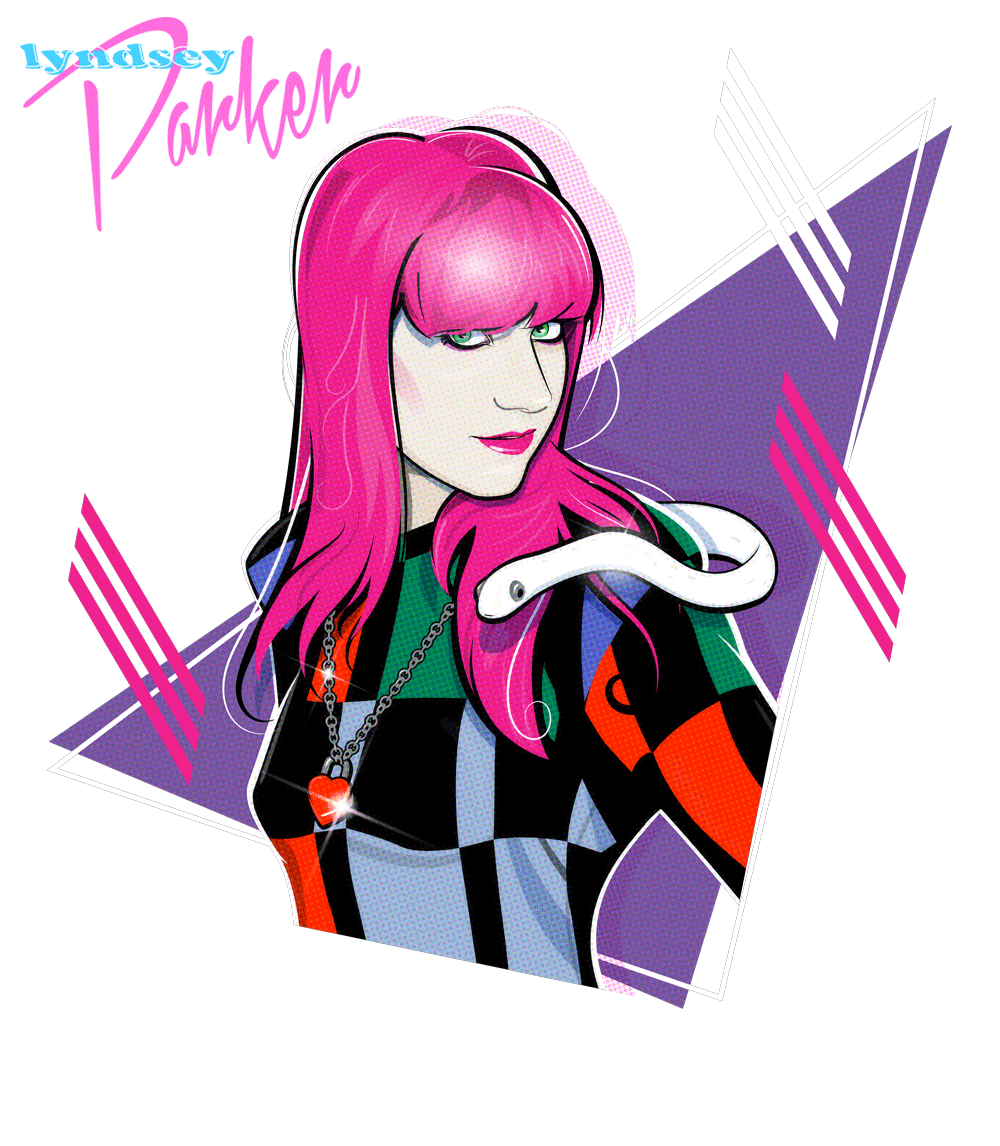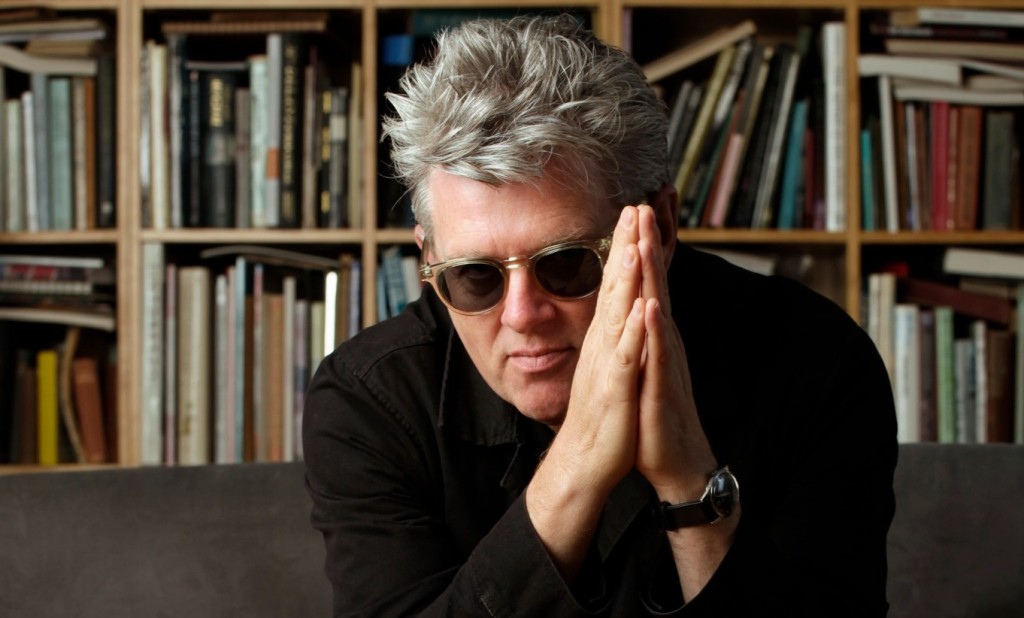Thompson Twins founder Tom Bailey is embarking on the all-star Totally Tubular Festival tour this week, and if there one’s song he’ll definitely be playing every night, it’s “If You Were Here,” even if — incredibly — it was never officially released as a single.
“For an American audience, it’s almost obligatory,” Bailey chuckles.
That ethereal new wave ballad achieved “iconic status” exactly 40 years ago, when it basically became the love theme from Sixteen Candles. “But only in the U.S., particularly on the West Coast; in the U.K., it’s just an album track, because people didn’t see that movie so much,” says Bailey. “And in fact, here’s the big admission: I’ve never seen the movie either.”
Bailey has actually socialized with Sixteen Candles ingenue Molly Ringwald. (“We had one of those kind of conversations in the kitchen of a house party and I asked her a lot about Harry Dean Stanton that she’d been working with, who fascinated me for some reason.”) However, he never felt the need to see the John Hughes coming-of-age flick, since its happy ending was spoiled for him for him long ago. (“And it keeps coming up on YouTube, so I’m fully aware of it.”) But Bailey has “always had a great affection” for the Sixteen Candles tune. “It happens to be one of my favorite Thompson Twins songs; for some reason, that song has a hold over me,” he muses. And he’s grateful that it soundtracked such a beloved film finale, since it probably never would have reached a massive American audience otherwise.
“I guess the [record label] people around us didn’t consider it to be a frontrunner in terms of single release, so we were lucky,” says Bailey. “I remember getting a phone call saying someone wanted to use it in a movie, and me saying, ‘Oh, that’s nice, because that song needs a bit of recognition.’”
While this may be easy to ignore, the reason why “If You Were Here” was not considered radio-friendly in 1984 was because it actually doesn’t have a traditional chorus. It wasn’t typical of the Thompson Twins’ catalog, either. “It has an unusual architecture. And also, it was very much a me song. I think I wrote the lyrics to that entirely, and I think perhaps [Thompson Twins members] Joe [Leeway] and Alannah [Currie] felt that it was too introverted, too me looking into myself,” Bailey explains. “Oddly enough, I think that why it does capture that kind of insecurity of teen romance, wondering what happens when it all goes wrong.”
Bailey’s vocals even sound a bit different on “If You Were Here” — softer and more hushed than his robust belting on radio smashes like “Doctor! Doctor!” or “Lay Your Hands on Me.” But that’s exactly what makes it so special. Bailey recalls of the track’s 1983 recording session: “I do remember having trouble coming up with the right approach to singing it in the studio. I ended up lying on the floor and having a microphone above my head, and I sang the whole thing lying down on the floor… because there was a confessional aspect to it that was, in a way, naively sexually charged. So, I wanted it to sound like I was in bed whispering the song in someone’s ear.”
Nowadays, the 68-year-old Bailey — who’d once “completely closed the book on the possibility” of playing Thompson Twins material live, and hadn’t done so for 27 years until he returned to the concert circuit in 2014 — approaches the classic song from a less teen-centric point of view. And the result is perhaps even more impactful. “I’ve fully re-inhabited it, so much that I’ve even written two extra verses, which put a whole new twist on the lyric. The new verses talk about the last time we met and how things are different now,” he explains.
While “If You Were Here” was never a single, Thompson Twins did chart seven top 40 hits on this side of the pond, three of which cracked the Billboard Hot 100’s top 10. There was a time when the band was so big that Madonna even sang backup for them at Live Aid. And yet, their once-colorful legacy had faded over the years and tends to be critically overlooked. Bailey mostly attributes this to the fact that they very willingly dropped out of sight — at least as Thompson Twins.
Bailey and his then-wife Currie started a more experimental electronic project, Babble, in 1994, and Bailey maintained a busy career both as a producer and with leftfield musical endeavors like International Observer and the Bailey-Salgado Project. But Thompson Twins played one of their last truly big gigs in 1987 (when they were in Chicago shooting the video for their theme from another ‘80s film, Tom Hanks’s Nothing in Common, and hopped onstage with Sting and Peter Gabriel at an Amnesty International benefit). The final Thompson Twins album came out in 1991, and Bailey and Currie divorced in 2003.
“We hadn’t maintained our profile in any way, so naturally it diminishes, I think,” Bailey theorizes. “Also, to some extent, there’s a tendency to move on from pop groups and think, ‘Well, that was then, and wasn’t it all so silly?’ And then you get characterized by your haircut rather than by your music, if you’re not careful.”
The Twins are often unjustly categorized as a novelty act, and that’s no doubt due to their deliberately crafted, oh-so-’80s image. First, there was their wacky moniker. (“None of them are named Thompson! And there’s THREE of them! And they’re not really twins!” declared every ‘80s article written about Thompson Twins, ever.) And then there were the fluffy hairdos, the giant duck-billed hats, and those blindingly bright baggy satin suits.
“Sure, we looked unusual and that got people’s attention, but it also made it difficult for us to fit into the concept of rock ‘n’ roll greats. There was something cartoonish about us, which to an extent we encouraged. … We set ourselves up for ridicule in a way,” admits Bailey, who descended from a long line of Sheffield coalminers and steel-mill workers and envisioned a more exciting future for himself. “We wanted to get away from being a drab shoegazing band and be bright and interesting. But the bands that endure are generally the ‘darker’ ones, because there’s some deep mystery about it that persists. Even a group like Depeche Mode, I think, were forgettable, even though I really loved their first records, until they became dark.
“I don’t know, the Thompson Twins was just a weird band,” Bailey shrugs. “It didn’t fit into the same kind of iconographic mold as most of the [other British new wave] bands because it was male and female, Black and white, and most of those other bands were just four guys with guitars. Four white guys with guitars. It was only because of the power of the songs that we got somehow in there. We were always seen as a little bit of a kind of quirky outsider outfit, but frankly, I’m very happy with that. It’s nice to be an outsider.”
While Bailey notes that Thompson Twins had “this dirty underground origin,” starting off in Sheffield as an artsy, Gang of Four-like seven-piece, by the time they slimmed down to a “shiny, poptastic” trio (“Alannah was doing visuals and lyric-writing, Joe was doing the live show, and I was doing the music and recording”), mainstream MTV superstardom had become the unapologetic goal.
“We wrote ourselves a manifesto, essentially: ‘Let’s have an experiment in success.’ And this experiment should be measured by certain criteria, like having a top 10 hit, getting onto certain TV shows, having an American tour, things like that,” Bailey reveals. “We said, ‘If we don’t do this within a year, then we’re fooling ourselves and we should go back to being an underground, experimental band.’ So, we were very clear about what we wanted to achieve, and we made sure that we achieved it. And it kind of worked!”
As evidenced by the Billboard stats above, it worked like a charm. In fact, Thompson Twins were so successful for a while that their former Arista Records labelmate, Al Jourgensen of synthpop-era Ministry, has claimed that Clive Davis had Bailey call Jourgensen to try and convince him to stay on the label, bragging that the Twins had just received a 3 million pound advance. “I’ve heard this story before, but to be honest, I can’t remember that actually happening. I do know that we had several meetings with Al in the early days, and I got on well with him, and there were probably long, drunken conversations in clubs late at night,” Bailey chuckles. “But one thing I can definitely vouch for is I didn’t get a check for 3 million pounds!”
Three-million-pound paycheck or not, Thompson Twins became one of the most vibrant breakout pop acts of the early/mid-’80s, and four decades later, despite his initial misgivings when he returned to the road in 2014, Bailey is delighted to have so many enduring hits to play at the Totally Tubular fest. And he doesn’t regret going full-on pop.
“We had a small following of from the underground side of our early careers, and some of them translated their affection quite easily into the new version of the band, but others said, ‘No!’ There was a general feeling that ‘pop’ was somehow a dirty word. There were even bands in the U.K. that refused to go on Top of the Pops because they thought it was ‘selling out,’” says Bailey. “But we wanted lots of people to find an affection for us, rather than just a few sophisticated critics.
“And that’s part of the problem that you face as a pop writer: to pretend that it’s somehow a dirty thing to do or that it’s really wrong,” he continues. “People think that pop is somehow superficial and therefore slap-dash and easy to do, but it’s the toughest thing to get right. There’s something really special about pop music because of its precision. It’s very, very economical and very precise and concise, and so it brings out a special requirement in the way that you work. You really have to concentrate to get it right, especially after you’ve already written a hundred songs. You can’t rely on luck. You have to put your back into it. And I enjoy doing that. I think it’s great to have an idea, and then can I work it into this perfect form — or as close to perfect as I can achieve.”








